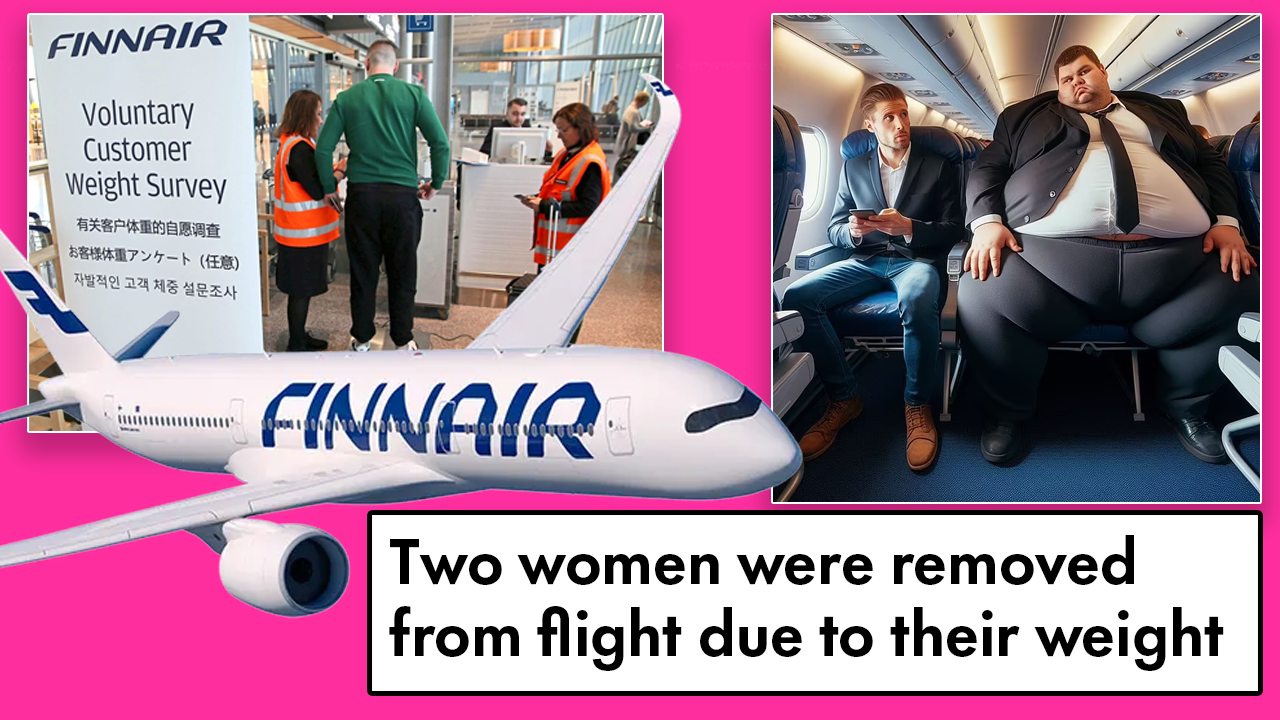
Weight Discrimination: Two Women Removed from Flight
In a startling turn of events, two women were reportedly removed from an Air New Zealand flight due to their weight, sparking outrage and trauma. What began as a simple disagreement over an armrest escalated into a harrowing ordeal, leaving a bitter taste in the mouths of the passengers involved. The fallout from this conflict with the airline continues to reverberate, raising questions about discrimination and passenger rights.
A Tale of Humiliation: The Unfolding Drama 💔
Angel Harding, one of the passengers removed from the flight, recounted the distressing incident to New Zealand television network 1News. Seated for her journey from Napier to Auckland, Harding experienced discomfort in her abdomen and raised the armrest of her seat to alleviate her discomfort. However, her actions were met with hostility by a flight attendant who insisted that all armrests must remain lowered for takeoff. Despite Harding’s explanation, the situation quickly escalated as the attendant threatened to eject both Harding and her friend from the flight.
Social commentator Ryan-Mark Parsons says there should be a “fat tax” on planes, as Finnair airline invites passengers to weigh in before take-off.
— Talk (@TalkTV) February 8, 2024
“There should be a requirement, if you are over a certain weight, to buy two seats.”@JuliaHB1 pic.twitter.com/HBtBaorDas
Standing Up Against Injustice: A Fight for Dignity 🗣️
As Harding’s friend attempted to intervene, the confrontation intensified. The women found themselves singled out as the plane abruptly turned back, and they were escorted off the aircraft. Harding alleges that the airline personnel blamed their removal on their weight, a claim denied by the airline. Nevertheless, the damage was done, leaving the women feeling humiliated and traumatized by the ordeal. Despite Air New Zealand’s apology, Harding and her companion refuse to accept it, demanding compensation for the emotional distress they endured.
Accountability and Apologies: Airline's Response ✈️
In response to the incident, Air New Zealand acknowledged their mishandling of the situation and issued an apology to the affected passengers. A spokesperson emphasized the airline’s commitment to treating customers with respect but maintained that passengers requiring additional space should notify the airline in advance. However, the apology falls short for Harding and her friend, who seek recompense for the humiliation they endured.
Seeking Justice: Demands for Compensation 💼
Harding and her companion are adamant in their pursuit of justice, rejecting mere apologies in favor of tangible compensation for the trauma they endured. Their demand for accountability resonates with advocates for passenger rights, highlighting the need for airlines to address weight-related discrimination and ensure equitable treatment for all travelers.
Conclusion: A Call for Change 🌟
As the fallout from this distressing incident continues to unfold, it serves as a poignant reminder of the importance of upholding dignity and fairness in air travel. Moving forward, it is imperative for airlines to prioritize inclusivity and sensitivity, ensuring that no passenger faces discrimination based on their weight or any other characteristic. Let this be a catalyst for change, fostering a culture of respect and empathy within the aviation industry.









